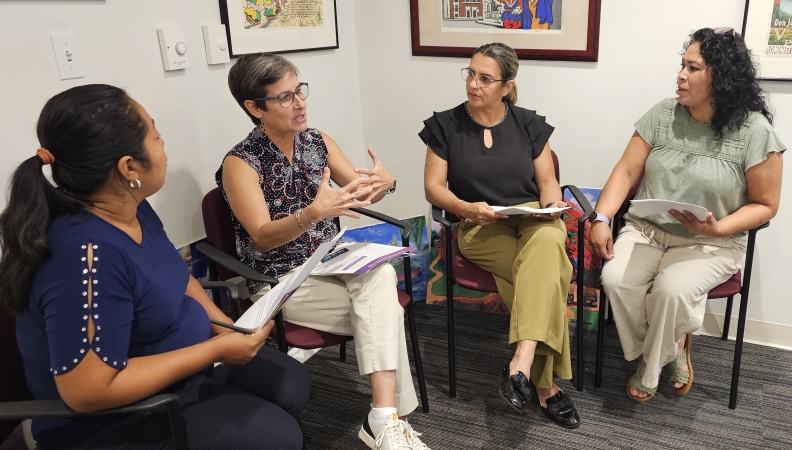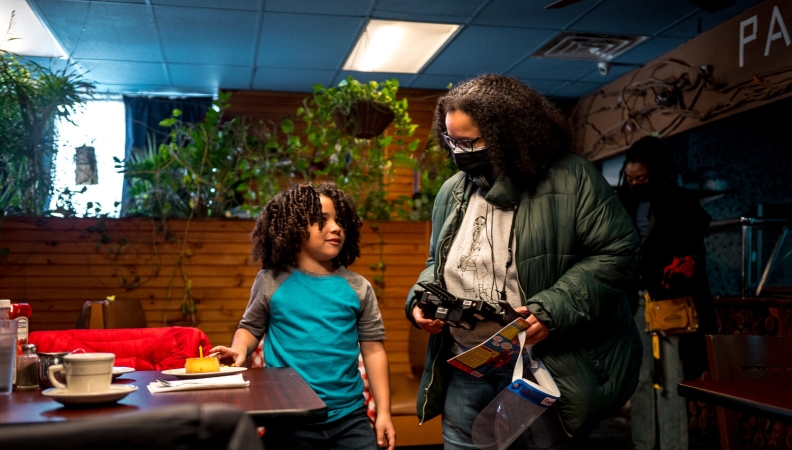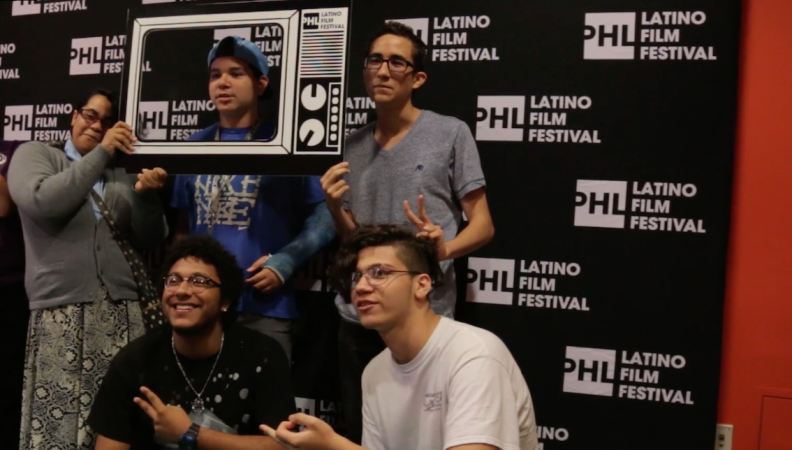Exploring Drag Culture Through an Artistic and Activist Lens
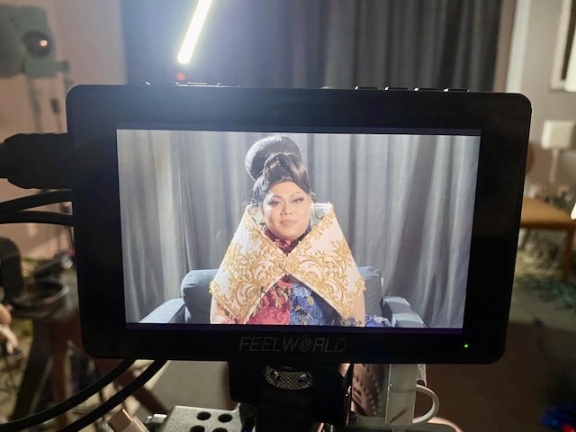
Drag entered the mainstream over the last several decades with more exposure to the art form in media and pop culture. But despite the growing demand of drag themed events such as drag brunches, drag shows, and drag queen story hours, in Philadelphia and abroad, these artists have endured many challenges along the way while doing what they love. Those challenges include financial limitations, lack of access to traditional support afforded to other creatives, and scrutiny from politicians looking to push restrictive policies amid a transphobic climate. However, one local Philadelphia producer has been working to preserve the oral history of drag artists to help educate audiences on what the experience is like performing drag.
Wilfredo Hernandez is the Founder and CEO of Communitas Arts + Culture, LLC. CAC is a thought and action lab that brings creatives together who use their art and culture work to strengthen community and bring about equity and social justice. Through Wilfredo’s organization he sought to document the lived experiences, hopes, concerns, needs, and overall culture perspectives of representatives from the Philadelphia drag and queer arts community in the Drag Arts Oral History Project.
“Our team, which includes videographer Les Rivera and our associate producers and project partners Joey Leroux and Rebecca Fisher, has always been intent on applying what is learned through the oral histories themselves to help amplify the voices of this community of artists that continues to go unserved in the great arts and culture community writ large, even in light of the especially toxic, violent, and untruthful rhetoric and policies being pushed by conservative politicians and voices this past year,” said Hernandez. “We hope our project helps to connect drag artists with the Philadelphia arts, culture, and business communities to help advance their expressed goals, needs, and interests as professional creatives in our city and beyond.”
Philadelphia has an active drag scene with events happening throughout parts of the city on a weekly basis. “The diversity of drag in Philadelphia is something to be celebrated,” said Hernandez. “In the past year alone our research and interview team has seen innovative and equitable work being produced at venues across the city, including culturally, identity and genre celebrating showcases, like Noche Latina (hosted by Nikita Sinnn Monroe), Transcend (hosted by Icon Ebony-Fierce), and Lotus Lounge (hosted by Asia Monroe). The iconic and multi-disciplinary artistry of Sapphire Cristál has further put Philly and Philly drag on the map with her stunning breakout performances on Season 16 of RuPaul’s Drag Race.”
RuPaul’s Drag Race, a reality TV competition show, has helped propel drag into the American mainstream and public consciousness in a way that cannot be understated, but drag does beyond this. “It’s important to note the success of RuPaul’s Drag Race historically and how the public writ large may understand drag only on a limited surface level today and only in the realm of competition,” said Hernandez. “Drag is more than this. It is more to the LGBTQ+ community historically, from before Stonewall even. We want to bring that layer of depth to the conversation, to help people build critical connections to the work of drag artists, especially local work by local drag artists!”
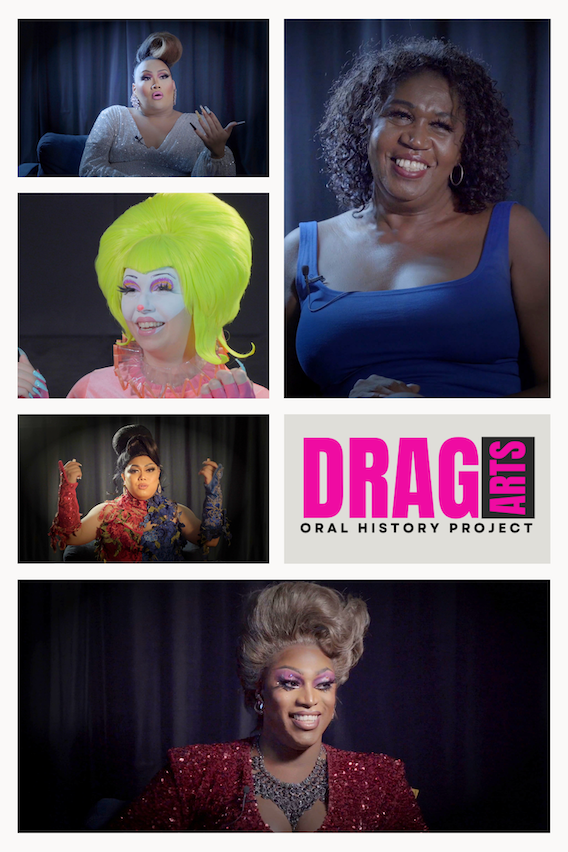
Wilfredo and his team conducted interviews with drag artists, including 17 full interviews. The team is confirming more artists to be included in future volumes of the “Philly collection.” “The project has a trifold model of learn, connect, and grow,” said Hernandez. “By recording and preserving these lived histories we are helping connect the dots between artist and audience about what it is actually like to produce and perform drag.”
Audiences see the finished product on film and stage but oftentimes aren’t aware of all the societal issues and sacrifices drag artists make along the way to turn their passion into a practice or profession. “Like any other art form, the practitioners who are doing this as a career have to deal with many intersecting issues and spheres of being in society,” said Hernandez. “Race, class, economics, politics, religion, spirituality, education…all of these issues are very much present and alive both in works of drag and in the lives of the artists who make and do drag.”
Wilfredo says this idea for this project was conceived during the COVID-19 pandemic with an intent to tell the stories of individuals who operate in an artistic community but aren’t afforded traditional support. “Drag is pretty much still relegated to the margins of the margins of the LGBT community, even though it's such an integral part of the community and really operates in a nightlife capacity,” said Hernandez. “And that was something coming from my own artistic background that I saw disconnect with. Why aren't these artists being supported, and especially during COVID. That's what spurred me to at least formalize the idea around the project.”
“I was shocked by the resiliency and ingenuity of the drag community here in Philadelphia during this time,” said Hernandez. “You had artists running mutual aid funds for and with each other because bars were closed and there was no place to show their work.”
The Drag Oral History Project was awarded an IPMF Community Voices grant in 2021. Part of this grant is working towards making drag more financially beneficial for the artists and affording them the resources that are afforded to other artistic practices. “Aside from financial compensation, we looked at care holistically,” said Hernandez. “We ensured each artist received a design stipend for hair, makeup, wardrobe, tokens of appreciation, round-trip secure transportation, and meals while on set. We look forward to developing access to more resources in the future to ensure that we can continue building upon this practice and increase financial support and investment in artists where possible. We want this experience to be one where our artists feel taken care of, treated like, and seen as artists, first and foremost.”
For Wilfredo, leading this project has been a dream and he looks forward to continuing the work. “There are so many artists our project still hasn’t had a chance to connect with yet, but we know the impact they are making is real and deeply felt across the city,” said Hernandez. “I encourage every reader to go out and support local Philly drag and see and contribute to the impact for themselves. You won’t be disappointed!”
“Anyone we’ve spoken to, personally and professionally, acknowledges the real transformative and radical power of drag when experiencing it live and in community, from late night bar shows, to festivals, to Broadway, to brunch,” said Hernandez. “Drag has the power to shift our conception of what is, and what is possible. To me, it ignites our critical consciousness, our awareness of ourselves and our bodies in relation to others, and our imaginations.”
Audiences will be able to experience the Drag Arts Oral History Project soon. For now, people can follow the website and their Instagram page @dragartsohp for more information.
Photo credit: Communitas Arts & Culture, LLC. All rights reserved
